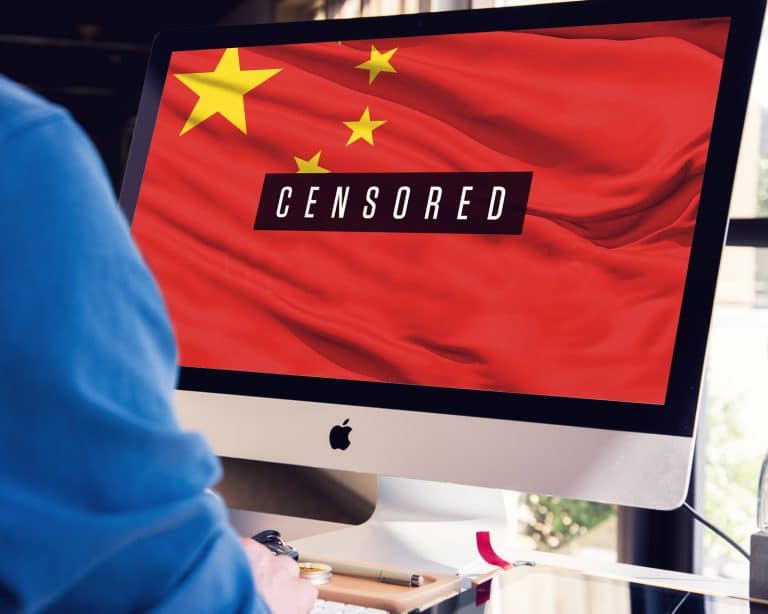
This article was originally published by Radio Free Asia and is reprinted with permission.
Ruling Chinese Communist Party (CCP) censors have removed a film about the struggles of a poverty-stricken farming couple from streaming sites, as police and officials clamped down on any form of public dissent ahead of the 20th National Congress next month.
“Return to Dust,” a love story about a couple who marry and eke out a living for themselves from farming despite being rejected by their own communities, was removed from online streaming platforms, with fans asking the movie’s producers for the reason behind the move on social media.
“Not available,” Weibo user @Loved_08791 wrote in a comment on Tuesday, with multiple “tears” emojis, while @wish_w wanted to know “why was it taken down?”
“It’s gone from iQiyi,” wrote @a_ah_yes_yes_yes_yes, adding “Why was it taken down?”
@Traveling_in_a_city wrote on Monday: “Is it due to copyright? Or some other factor?” while @Eat,_sleep_and_beat_the_boss asked: “Why can’t I watch this film?”
Until a few weeks ago, Return to Dust seemed doomed to the same fate as many art-house films about rural Chinese life — relative success at overseas festivals contrasting with relative obscurity back home.
After getting off to a slow start following its release on July 8, the film suddenly rebounded at the box office, raking in some U.S.$7.1 million by the beginning of September.
The film tracks the fates of protagonists Ma Laosi and Cao Guiying — two people born and bred in rural Gansu province who have been rejected by their families.
They find solace together, marry, and set up house in a touching and fragile experience of coming home. But further injustice and hardship are just around the corner, with villagers declining to rescue a drowning Cao, and Ma committing suicide in grief.
The bleak ending quickly aroused the ire of CCP “public opinion” managers, who generally see media and cultural products as a tool to advance “positive stories” about China, along with party propaganda.
‘Ulterior motives’
The film was denounced by Zheng Yanshi, a senior researcher at the Kunlun Research Institute, as having “ulterior motives,” and “repeatedly hyping them up ahead of the party congress.”
“How is the film-maker positioned here, and who are they speaking for,” Zheng demanded to know in a Sept. 9 post. “How did you manage to let such a gross and terrible movie through?” he asked government censors.
Wang Ruiqin, a former member of the Chinese People’s Political Consultative Conference from Qinghai Province now living in the United States, said Return to Dust was a realistic portrait of rural life.
“I am a native of the northwest,” Wang said. “I spent a long time in Qinghai and Gansu, and I’m very familiar with those places.”
“This film paints a very vivid and realistic portrait of rural life in the northwest,” he said.
He said CCP ideologues regard any story like that as a kind of attack on the ruling party.
“The ideological trend in China right now is that everything is influenced by CCP control, and the CCP regards [this sort of story] as a kind of slander, and it won’t tolerate any kind of objective or accurate portrayals,” Wang said.
“They only want to hear praise [for the CCP], and will attack anything to do with social injustice as unacceptable,” he said.
Zhu Rikun, an independent film producer based in New York, said movies in China are expected to meet the political needs of the regime.
“It is all about the political needs of the Chinese government, which sees movies as a political tool to serve the regime,” Zhu told RFA. “It’s rare to see this kind of [more realistic] film, because they are overshadowed by China’s [official] cultural output.”
The movie’s demise in Chinese movie theaters and streaming sites came as police and officials on the ground stepped up operations aimed at preventing petitioners — ordinary Chinese people pursuing complaints against official wrongdoing — from being heard ahead of the party congress.
Crackdown on petitioners
Police have been contacting landlords and going door-to-door in suburbs of Beijing known to be home to thousands of out-of-town petitioners, forcing landlords to evict them, or detaining them and sending them home under official escort, petitioners told RFA.
In one video clip posted to social media on Tuesday, the person shooting shows steel barriers around the entrance to the State Bureau of Letters and Visits, or complaints department, preventing anyone from getting close to the building.
“It’s Sept. 26, 2022, and just look at the bureau of letters and visits,” the voice says. “It’s surrounded by steel plating — I really don’t know what’s going on.”
A petitioner Zhou said the level of security is unprecedented.
“Local governments always have control measures before major meetings, and petitioners get escorted [back to their hometowns], but the State Bureau of Letters and Visits has always stayed open,” she said. “This year is a bit unusual.”
She said many petitioners across China are being prevented from going anywhere via the “Health Code” COVID-19 app, because their codes are being turned red, barring them from public transportation.
“You can’t get on a train or bus at all with a red code, so the Health Code is also a means of control,” she said.
A petitioner surnamed Cheng agreed. “I don’t think it’s ever been blocked off before,” she said, while a Beijing petitioner surnamed Tang said: “This is not normal — it’s a very strange phenomenon.”
Tang said police are out in petitioner neighborhoods checking people’s ID on the streets.
“If you try to rent an apartment, the landlord will ask for your ID card, which will then be uploaded to the police station,” she said. “Everyone has to leave Beijing.”
0 comments :
Post a Comment